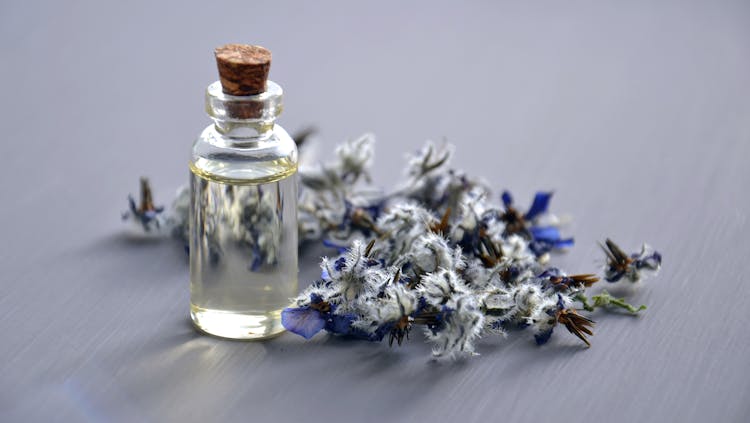Aromatherapy, the practice of using aromatic plant extracts and essential oils for therapeutic purposes, has been cherished for centuries.
Originating from ancient civilizations, this holistic healing treatment continues to captivate people today.
Its popularity stems from its ability to influence both physical and emotional well-being, offering a natural alternative to conventional medicine.
Whether it’s through massage, inhalation, or topical application, aromatherapy has found its way into modern wellness routines.
In this article, we’ll explore the fundamentals of aromatherapy, its benefits, and the role of essential oil diffusers in enhancing the experience.
Understanding Aromatherapy
At its core, aromatherapy harnesses the natural essences of plants to promote health and well-being.
These essential oils are extracted from various parts of plants, including leaves, flowers, and roots, and each oil comes with unique therapeutic properties.
For instance, lavender oil is known for its calming effects, while eucalyptus oil is celebrated for its respiratory benefits. The method of application can vary, but the oils are most commonly inhaled or applied directly to the skin.
The versatility and natural origins of aromatherapy make it a preferred choice for those seeking non-invasive and holistic health solutions.
Benefits of Aromatherapy
Aromatherapy offers a wide range of benefits, addressing both physical and emotional health concerns.
On the physical front, essential oils can help alleviate pain, improve digestion, and boost the immune system.
For example, peppermint oil is often used to relieve headaches, while tea tree oil is known for its antimicrobial properties. Emotionally, aromatherapy can reduce stress, enhance mood, and even improve sleep quality.
The scent of certain oils, like chamomile or sandalwood, has a direct impact on the brain’s limbic system, which controls emotions and memory. This dual-action on body and mind is what makes aromatherapy such a powerful tool in natural healing.
The Role of Essential Oil Diffusers
One of the most popular methods of experiencing aromatherapy is through the use of essential oil diffusers, like Young Living’s LunaMist. These devices disperse tiny molecules of essential oils into the air, allowing them to be easily inhaled.
Diffusers come in various types, including ultrasonic, nebulizing, and heat diffusers, each offering a unique way to enjoy the benefits of essential oils. Ultrasonic diffusers, for example, use water and electronic frequencies to create a fine mist, which not only disperses the oils but also adds moisture to the air.
This method is particularly popular because it maintains the integrity of the essential oils while providing a gentle and continuous aroma. Using a diffuser is an easy and effective way to create a calming environment at home or in the workplace, making aromatherapy accessible and convenient for everyday use.
Incorporating Aromatherapy into Daily Life
Integrating aromatherapy into your daily routine can be both simple and rewarding. For those new to the practice, starting with a diffuser and a few essential oils like lavender, peppermint, and lemon can be a great introduction.
You can use different oils throughout the day depending on your needs; for instance, invigorating citrus oils in the morning to boost energy, and calming lavender in the evening to unwind. Aromatherapy can also be incorporated into skincare, with essential oils added to lotions or bathwater for an enhanced self-care experience.
The key is to find what works best for you and to experiment with different oils and methods.
Aromatherapy and Mental Health
In recent years, the connection between aromatherapy and mental health has gained significant attention.
The practice is increasingly being used as a complementary therapy for anxiety, depression, and stress-related disorders. Essential oils like bergamot, frankincense, and ylang-ylang are known for their mood-enhancing properties, helping to ease symptoms of anxiety and depression.
When inhaled, these oils interact with the brain’s limbic system, influencing emotions and promoting a sense of calm and well-being. Regular use of aromatherapy, particularly through diffusers or personal inhalers, can be a valuable tool in managing mental health challenges, offering a natural and non-invasive approach to emotional healing.
Aromatherapy in Professional Settings
Beyond the home, aromatherapy is finding its place in professional environments such as spas, wellness centers, and even offices. In spas and wellness centers, essential oils are often used in massage treatments and steam rooms to enhance relaxation and rejuvenation.
In the workplace, diffusing oils like rosemary, lemon, or peppermint can improve focus, reduce stress, and create a more pleasant atmosphere.
Some companies are even incorporating aromatherapy into their employee wellness programs, recognizing its potential to boost productivity and employee satisfaction.
By integrating aromatherapy into professional settings, businesses can contribute to the overall well-being of their employees and clients, making it a win-win for everyone involved.
Benefits of Aromatherapy
Aromatherapy offers a natural, holistic approach to health and well-being that is accessible to everyone.
Whether you’re looking to reduce stress, improve sleep, or simply create a more pleasant environment, the use of essential oils and diffusers can make a significant impact.
As with any wellness practice, consistency is key over time, the benefits of aromatherapy can become an integral part of a balanced lifestyle.
By embracing this ancient practice, you not only honor the wisdom of the past but also pave the way for a healthier, more harmonious future.












